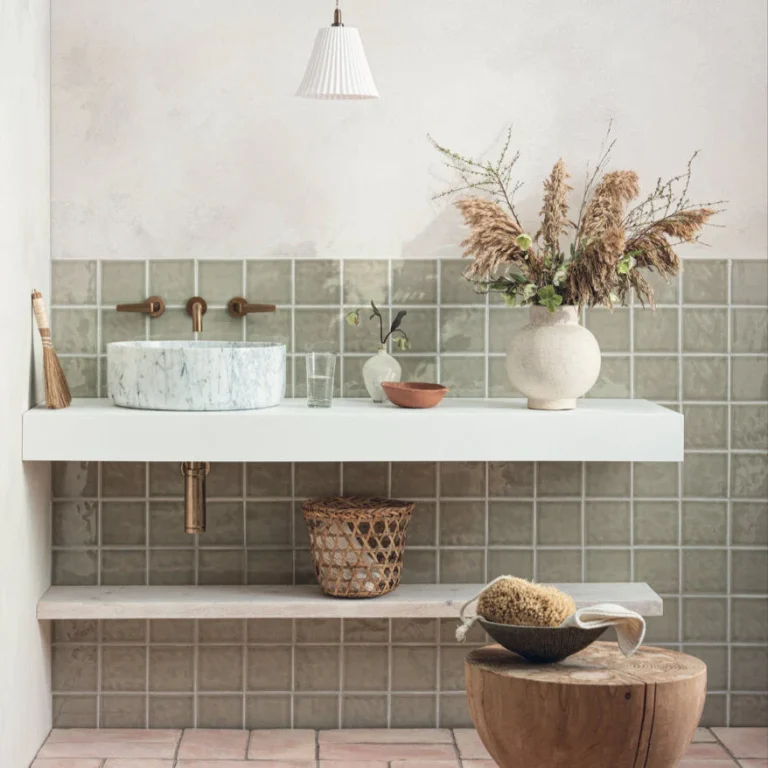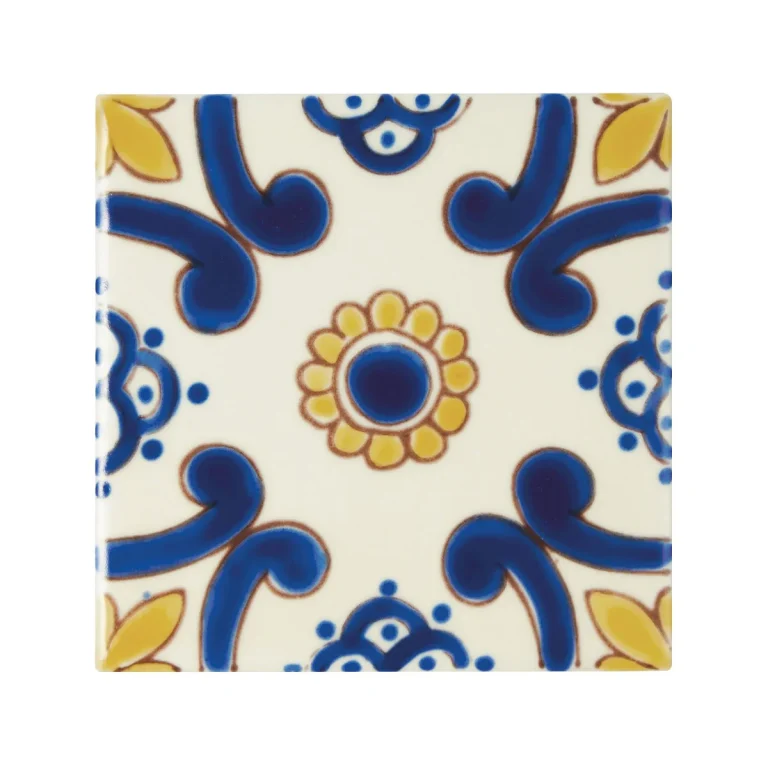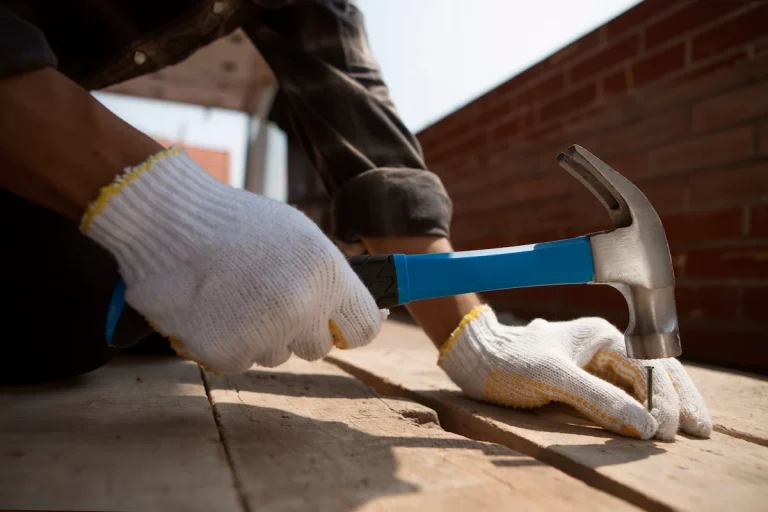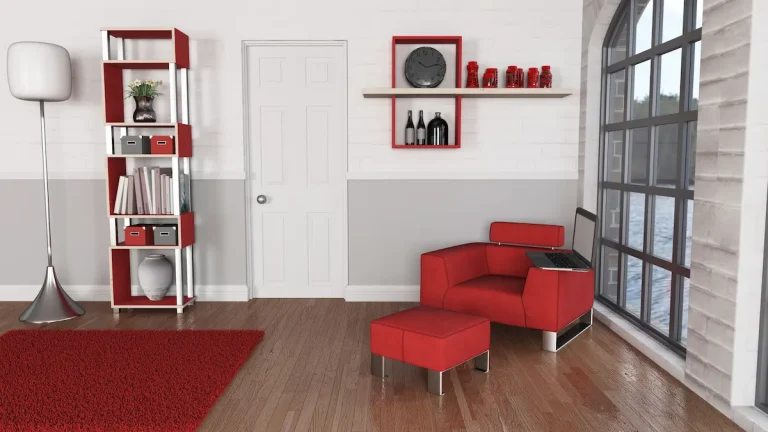Are you looking for conservatory flooring ideas? Choosing the right flooring is crucial to creating a comfortable and stylish space that suits your needs.
Consider factors like climate and budget when exploring flooring options such as laminate, vinyl, and natural stone. We will guide you through everything you need to know about conservatory flooring options.
Stay tuned for tips on maintenance and the pros and cons of each flooring type for your conservatory!
What Is a Conservatory?
A conservatory is a versatile room designed to bring natural light into your home, often used as a space for relaxation, and dining, or as an additional living area that bridges the indoor and outdoor environments.
The abundant natural light that floods a conservatory not only creates a bright and airy atmosphere but also provides numerous health benefits, boosting mood and energy levels. The design aesthetics of a conservatory can greatly enhance the overall look and feel of a home, adding a touch of elegance and charm.
Whether used as a cosy reading nook, a vibrant space for indoor plants, or a stylish entertaining area, a conservatory offers versatility in functionality. Imagine enjoying your morning coffee while basking in the warm sunlight filtering through the glass panels of your conservatory.
Factors to Consider When Choosing Conservatory Flooring Ideas
Selecting the correct flooring for your conservatory entails taking into account various factors, such as climate, temperature, the amount of natural light, how the space will be used, and your budget to guarantee the flooring is both practical and stylish.
a. Climate and Temperature
Climate and temperature are crucial considerations when selecting flooring for conservatories, as these spaces can experience significant temperature fluctuations.
High-temperature variations in conservatories can impact various flooring materials differently. For example, natural hardwood floors may expand and contract with temperature changes, leading to warping and damage over time. In contrast, tiles and stone floors are more resilient to temperature fluctuations, making them a durable choice for conservatories.
Considering the impact of temperature changes, underfloor heating systems can be a beneficial addition to conservatories. They provide consistent warmth, helping to regulate the temperature and reduce the risk of damage to the flooring. This feature is particularly advantageous for materials like laminate and vinyl, which may not fare well with extreme temperature shifts.
b. Amount of Natural Light
The amount of natural light a conservatory receives can influence the choice of flooring, as certain materials can fade or degrade with prolonged sun exposure.
Regarding choosing flooring for a high-light environment like a conservatory, it’s essential to consider both the aesthetic appeal and the practicality of the material.
Hardwood flooring, for instance, can add warmth and elegance to the space, but it may be susceptible to fading over time. On the other hand, porcelain tiles offer a durable and stain-resistant option that can mimic the look of wood or natural stone without the risk of sun damage.
Another stylish and resilient choice for bright spaces is luxury vinyl flooring. This versatile material comes in a wide range of designs, including hardwood and tile patterns, providing a budget-friendly alternative that is easy to maintain and UV-resistant.
c. Usage of the Conservatory
How you plan to use your conservatory can dictate the most practical and stylish flooring options, ensuring that the space meets your functional needs while staying aesthetically pleasing.
For a conservatory transformed into a cosy dining area, consider durable flooring like laminate or luxury vinyl tiles to handle spills and heavy traffic. These options offer both easy maintenance and a stylish look that complements your dining furniture.
If you envision your conservatory as a relaxing lounge space, opt for plush carpeting to create a warm and inviting atmosphere. Alternatively, engineered wood flooring can add a touch of elegance while being easy to clean.
When converting the conservatory into a playroom, choose carpet tiles for a soft and safe surface that can withstand playtime wear and tear. Bright colours and patterns can also make the space more playful and child-friendly.
d. Budget
Budget is a key factor in choosing conservatory flooring, with options ranging from high-quality, premium materials to more affordable yet durable alternatives.
For those looking to prioritise longevity and luxurious aesthetics in their conservatory, premium materials like hardwood or natural stone could be the ideal choice. While these options may come with a higher initial cost, their durability and timeless appeal often justify the investment in the long run.
On the other hand, if budget constraints are a primary concern, laminate or vinyl flooring offers cost-effective solutions that mimic the look of natural materials without breaking the bank.
When searching for high-quality flooring within a budget, it’s essential to focus on factors like material quality, warranties, and reputable suppliers. Consider opting for factory seconds or remnants, as these can provide significant cost savings without compromising the overall quality of the flooring. Another tip is to explore promotions and discounts offered by flooring retailers, especially during sales events or clearance periods, to secure premium flooring options at more affordable prices.
Conservatory Flooring Ideas
There are several suitable conservatory flooring ideas, each offering unique benefits and aesthetic appeal to enhance this versatile space.
1. Laminate Flooring
Laminate flooring is one of modern conservatory flooring ideas, offering the look of natural wood, such as oak laminate while being easy to clean and maintain.
One of the key benefits of laminate flooring is its exceptional durability, making it ideal for high-traffic areas like conservatories. The protective layer on top of laminate flooring resists scratches and stains, ensuring a long-lasting, beautiful finish.
Laminate flooring is known for its ease of installation, thanks to the click-lock or glueless installation systems available. This makes it a popular choice for DIY enthusiasts looking to upgrade their space quickly and efficiently, saving both time and costs.
Regarding design, oak laminate flooring adds a touch of elegance and warmth to a conservatory, blending seamlessly with both traditional and modern decor styles. Its natural grain and colour variations bring a sense of authenticity, enhancing the overall aesthetic of the space.
See product: Elka 12mm Sunrise Oak
2. Vinyl Flooring
Vinyl flooring, especially luxury vinyl, is a highly practical and functional choice for conservatories, known for its durability and resistance to moisture.
There are various types of vinyl flooring available in the market, each catering to different needs and preferences. Luxury vinyl, in particular, stands out for its high-end look and feel, mimicking the appearance of real hardwood or stone.
Many flooring experts highlight that vinyl flooring’s ability to withstand high moisture levels makes it particularly suitable for conservatories, where temperatures and humidity levels can fluctuate.
See product: Luvanto Click Plus Distressed Olive Wood
3. Porcelain or Ceramic Tiles
Porcelain or ceramic tiles are a sleek and modern option for conservatory flooring, known for being easy to clean and maintain.
One of the key advantages of using porcelain or ceramic tiles in conservatories is their aesthetic appeal. With a wide range of colours, patterns, and finishes available, these tiles can effortlessly enhance the overall look of the space, giving it a contemporary and sophisticated feel. These tiles are highly durable, able to withstand heavy foot traffic and resist scratches, stains, and moisture damage, making them an ideal choice for high-traffic areas like conservatories.
The low maintenance requirements of porcelain or ceramic tiles further add to their appeal. Unlike other flooring options, these tiles are easy to clean with just regular sweeping and occasional mopping. This not only saves time and effort but also ensures that the conservatory floor remains looking fresh and new for years to come.
4. Engineered Wood Flooring
Engineered wood flooring offers the natural beauty of hardwood with added stability, making it a stylish choice for conservatories.
One of the key advantages of engineered wood flooring is its ability to mimic the look and feel of traditional hardwood, providing a luxurious aesthetic without high maintenance requirements. The layers of engineered wood are designed to withstand fluctuations in temperature and humidity, making it a durable and reliable option for conservatory environments where conditions can vary. Its engineered construction contributes to enhanced dimensional stability, reducing the risk of warping or bowing over time. This type of flooring harmonises well with the natural light and organic elements often found in conservatories, enhancing the overall ambience of the space.
See product: Lionvest Engineered – 464 – Rustic Oiled
5. Natural Stone Flooring
Natural stone flooring is an elegant and durable option for conservatories, offering high quality and timeless appeal.
Marble, known for its luxurious appearance and distinctive veining, is a popular choice for those seeking a sophisticated touch in their conservatory. Its durability and resistance to wear make it ideal for high-traffic areas.
On the other hand, slate boasts a rugged natural beauty and is highly durable, suitable for both indoor and outdoor use. These types of natural stone flooring require minimal maintenance and can withstand moisture and fluctuating temperatures, making them a perfect choice for conservatories.
6. Carpet
Carpet brings a cosy and inviting feel to a conservatory, making it one of the best conservatory flooring options. The soft texture of the carpet provides a warm underfoot experience, which is especially appreciated in a room with large windows and tile or concrete flooring that can feel cold. Carpeting also helps insulate the space, maintaining a more consistent temperature throughout the year by trapping heat during winter and providing a cool surface during summer.
In addition to its comfort, the carpet offers excellent sound absorption. This feature is particularly beneficial in a conservatory, where the abundance of hard surfaces and glass can amplify noise. With carpet, you can enjoy a quieter, more serene environment. Furthermore, carpets come in a wide range of colours, patterns, and textures, allowing you to customise the look of your conservatory to complement your style and décor.
See product: Victoria Carpets Aura Picnic
7. Cork Flooring
Cork flooring is another outstanding conservatory flooring idea due to its unique properties. Cork is a natural insulator, providing excellent thermal and acoustic insulation. This means it can help maintain a comfortable temperature in your conservatory while also reducing noise levels. The insulating properties of cork are particularly advantageous in a conservatory, which can be prone to temperature fluctuations due to its extensive glazing.
Cork flooring is also highly resilient and comfortable underfoot. Its natural elasticity gives it a slight cushioning effect, making it comfortable to walk on and reducing fatigue, which is ideal for a space where you might spend a lot of time relaxing or entertaining. Cork is also an eco-friendly flooring option, as it is harvested from the bark of cork oak trees without harming the tree, making it a sustainable choice for environmentally conscious homeowners.
Additionally, cork flooring is naturally resistant to mould, mildew, and pests, which ensures a healthy indoor environment. It is also hypoallergenic and easy to maintain, requiring only regular sweeping and occasional mopping to keep it looking its best. Cork’s unique grain patterns and warm, natural hues add an earthy, organic aesthetic to your conservatory, enhancing the overall ambience of the space.
Pros and Cons of Each Type of Flooring
Understanding the pros and cons of each conservatory flooring idea can help you make an informed decision for your conservatory, balancing practicality, style, and durability.
Hardwood flooring adds warmth and elegance to a conservatory, making it a popular choice for those seeking a classic look. Its durability and timeless appeal often outweigh the higher initial cost.
On the other hand, laminate flooring offers a more budget-friendly alternative that can mimic the appearance of hardwood convincingly. It is easy to clean and maintain, ideal for busy households.
Tile flooring, such as ceramic or porcelain, provides exceptional water resistance, making it suitable for conservatories prone to moisture exposure. This type of flooring comes in a wide range of designs, from traditional to modern, offering versatility and durability. Tiles can feel cold underfoot and may require radiant heating for added comfort during cooler months.
Tips for Maintaining Conservatory Flooring
Proper maintenance of conservatory flooring ensures its longevity and keeps it looking high quality and beautiful, while also being practical and easy to clean.
Regarding wooden floors in conservatories, it’s essential to regularly dust and sweep to prevent scratches. Using a soft-bristle broom or a vacuum with a wood floor attachment can help maintain the floor’s shine.
To avoid water damage, wipe up spills immediately and refrain from using excessive water when mopping. For tile flooring, a gentle pH-neutral cleaner is ideal to prevent grout discolouration. To keep it looking fresh, sealing the grout every year can enhance its durability and appearance.
Conclusion
Choosing the right flooring for your conservatory involves balancing style and practicality to create a beautiful and functional space.
When selecting flooring for your conservatory, it’s essential to consider factors such as durability, maintenance, and visual appeal.
Wood flooring can add warmth and elegance while laminate flooring offers a practical and cost-effective solution. Tiled floors provide a versatile option suitable for various decor styles. Furthermore, carpet floors can create a cosy atmosphere and vinyl flooring offers a wide range of designs to match your unique taste. Underfloor heating can enhance comfort, especially in colder months
choosing the right flooring for your conservatory can transform it into a stunning and functional space. Whether you prefer the timeless elegance of engineered wood, the durability of vinyl, the practicality of laminate, or the cosy feel of carpet, finding the perfect match is essential.
For a wide selection of high-quality conservatory flooring ideas, look no further than TEKA Flooring. With a diverse range of products, including laminate, vinyl, engineered wood, and carpet, we have everything you need to create the conservatory of your dreams. Visit TEKA Flooring today and discover the perfect flooring to elevate your space.
Read also:

































